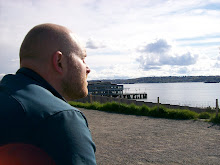Caught between two extremes

I feel stuck between to inner longings. On one side I long to be called to something inspiring, beyond me that moves my soul. I want to be part of great change next to close friends, family and complete strangers. I long to inspire others. Embedded in the kingdom of God exists this sort of inspiration. At least I think so. We, the church, are called to be change agents in this world, to be hope and light where there is total darkness. We are to fight injustice, take on the sex trade, better our schools and love all as part of the gospel. These social injustices caused by sinful reality are beyond any one of us which is why taking them head on can cause the same sort of dismissal or inspiration as climbing a mountain. I want my life to be given to causes like these.
At the same time I long for a rest and a peace that is from the Spirit. I long to be satisfied in my identity in Christ and okay with being used for whatever purpose I have been created. I think of the older couples’ story that I heard this past week. For the past 40 years they have regularly and faithfully volunteered at a retirement community in their backyard. They taught music, help put on plays and spent time with the residents there. They are not part of a organized movement. They have not made any sort of noticeable change in our community and yet their simple, steady form of service inspires. What are the little things each day where obedience can be lived out and with it comes a sense of peace that God will do what he does? How do these two longings, if both proper to have, coexist?
How does peaceful, simple obedience dance with taking on ‘bigger than I can get my brain around’ initiatives?










